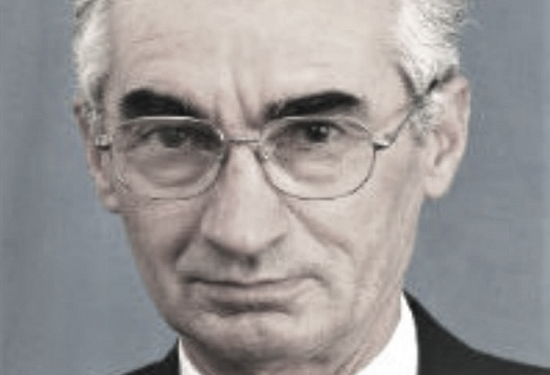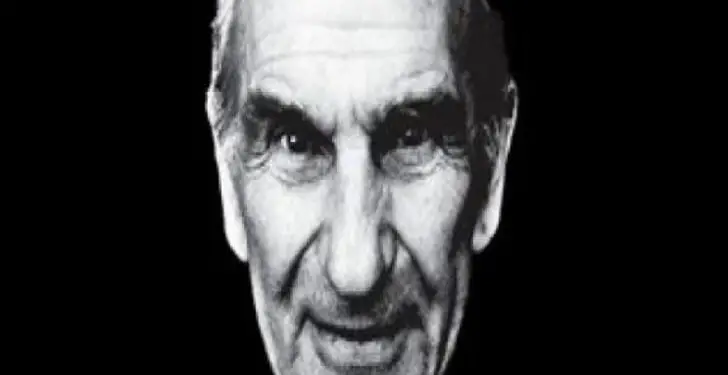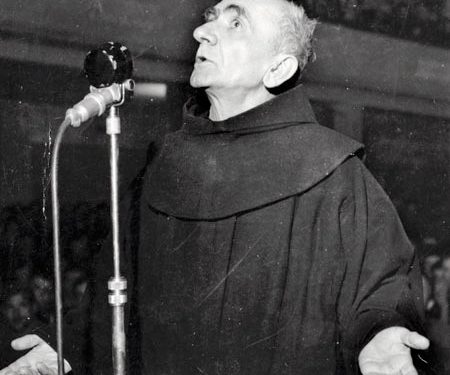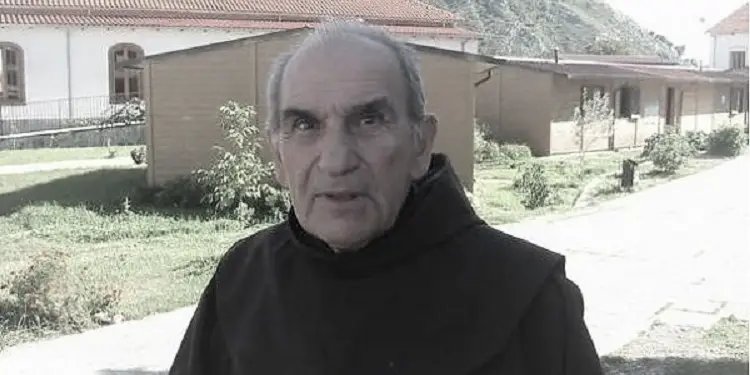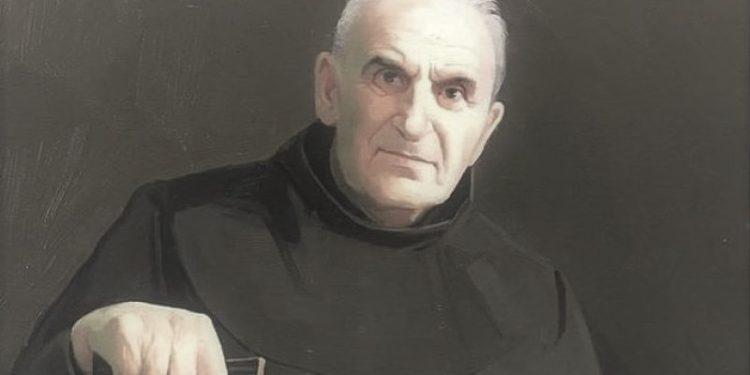By Eugene Merlika
Missionary of truth
– Respect to Father Zef Pllum –
Memorie.al/ They say that in ancient times, in one of the countries of the East, a young King, newly crowned at the age of twenty, was eager to know the history of humanity. He called to him the scholars of the kingdom and charged them with the task of writing it. After ten years of work, the scholars appeared before the King with a caravan of a hundred camels loaded with stone tablets, on which history was written. The king found reading them a very tiring job and asked for its summary. Decades passed. The older historians handed over the task to the younger ones. The number of camels with stone slabs decreased, but the King, already frustrated by the problems of governance and seeing the enthusiasm of the twenty-year-old boy, did not decide to learn the history he wanted so much. On her deathbed, with dim eyes and bleached hair, the thought of leaving this world without knowing her past throbbed in her mind. As before, he gathered the scholars of the kingdom and asked them, in short, to teach him the history of humanity. Then their oldest approached the bed and said: “Majesty, man is born, lives and dies. This is the history of humanity.”
In this span of time, in which the two lateral points represent the arrival and departure from this world, flows in all their diversity the lives of people who, coordinated by codes of rules and laws, join like the lines of water in the bed of a river to form societies and nations.
Their streams end in the vast sea that is humanity and their interweaving constitutes what is called the history of humanity. Each of us is a drop of water in the great ocean of humanity, but people’s lives and personalities are not like drops of water.
They each have their own, starting from the external appearance and ending with the invisible inner world of thoughts, feelings, fantasy, will, aspirations, the creation of which determines the role and place that each one occupies in the community in it which he lives.
That role and that place are indicators of the individual’s longevity in the general memory during life and after its earthly end. While the dust of oblivion falls mercilessly on the vast majority of names, it does not put a layer on a few of them, it does not manage to cover them.
One of these names is that of Father Zef Pllum, whose earthly life was terminated late in the evening of September 25, in one of the most popular hospitals in Rome, in the Policlinico ‘Gemmelli’. The parable of his life began in March 1924, a fatal year for Albanian democracy, in the heart of ancient Arberia, in the mountains of Lezha, where Skënderbeu called the founding Assembly of the Albanian League and ended in the thousand-year-old capital of the ancient world, in eternal Rome.
It was a long series of endless struggles, sufferings, pains and sacrifices that the communist violence mercilessly threw on his back, like the snow avalanches of the Albanian Alps, from the time he was a young boy until his body was bent by the weight of their and age. Almost half of his manhood was spent in the political prisons of communist Albania.
It was that death and forced labor camps, in the first twenty years of the dictatorship, the temples of Albanianism, where the best and most qualified minds that Albania had were locked up, even though they were turned into test cages by powerful criminals, before whom Jozef Mengele, was a pale copy.
From their conversations, the young priest learned the history and feats of his native land, stored them deep in his unusual memory, to later line them up in his monumental work “Rrno only per me tregue”.
Those people, once the cultural elite of the nation, with bodies distorted by torture, hunger and animal work, were for him like hives of bees where he found the nectar of human knowledge and the concentrated substances of the Albanian’s character and morality.
Father Zef Pllumi was a multifaceted personality. He was a Catholic priest, determined to preach the word of Christ and implement his teachings. He was a keen observer of people, of life and its phenomena, qualities that made up the humus of the writer’s skill.
But he was not only the Catholic writer, he was also the tribune of free speech, he was the democratic citizen who lived with the daily problems of his country, who did not deal with active politics but looked at it with the critical eye of a patriot, a lover of fate of his people.
As a Catholic priest, he had to face, together with his colleagues, the most powerful storms that contemporary history had in store for the Catholic Church. I believe that there is no institution, in the world of dictatorships of the last century that deserves the title of martyr more than the Albanian Catholic Church.
Father Zef Pllumi was an obedient and faithful servant of hers. As such he carried the cross on his back throughout his life. He faced his calvary with courage, humility, courage and stoicism, standing on his feet, without falling, with unwavering faith in God’s help, with unwavering hope in the word of Christ.
He was close to seventy when he resumed preaching at the church of Saint Ndou in Tirana. In that long and powerful process that was the revival of the Albanian Catholic Church, Father Zef Pllumi remained a simple parish priest, he did not ascend to the newly created hierarchy and, it is said, the relations with him were not idyllic.
I am not inside those relationships, but I do not find convincing the fact that a martyr with his curriculum vitae and his intellectual abilities, remained a simple parish priest in a country like Albania, whose Catholic Church had suffered the most destructive annihilation wave that had known in its two thousand year history. The survivors of that wave deserved more attention…!
Today Zefi met with his spiritual fathers, those clerics, patriots and democrats massacred by communism, who gave so much help to the patriotic formation of Albanians and their culture. He went to the open house and they received him very kindly, because little Zefi, who they had as a student in the Franciscan College, passed the test with the best. He reached the pinnacle of the cultural life of his people and fully restored their trust to witness the truth.
“Just show me”, was the order of those who had the foresight to predict the painful tragedy that would befall Albania. Father Zefi showed it after half a century, simply, without additions and decorations, leaving us an immortal work. In it, he told us our true history, with its fascinating details, that history that, even today, many in our country do not wish to see written down, let alone learn from generations young people.
Through his writings on the pages of ‘Hylli i Drita’, the magazine of the great Father Gjergj Fishta, which he revived for Albanian readers, Father Zefi spoke with the language of the priest and martyr of religion, the apostle of culture and the cultivator of immortal values of his people but, above all, with the language of truth.
To respect the truth, not to violate and distort it, to remain faithful to its reflection even when it does not benefit us, these were the lessons that Father Zef Pllumi left us as a message through his life and work.
He proclaimed and defended the truth in all its forms and manifestations, in writings, sermons, conversations and suggestions for politics and the smooth running of the state and society. It was this principle that made his work not only the most powerful artistic evidence of the Albanian communist dictatorship, but also the bearer of a strong moral message, not only for today’s readers but also for generations to come.
Therefore, today we wholeheartedly honor his memory and feel a special pleasure when we know that he had the satisfaction of being forever appreciated as “Honour of the Nation”, an appreciation that rewards not only the person, but also his history and the help given in the culture of Albanians.
Today, the Albania of religion and culture is wearing mourning clothes. Today, she accompanies to her last residence, in the land of ancient Shkodra, an outstanding son of hers, who will remain in her memory for a long time. Memory.al
September 2007




